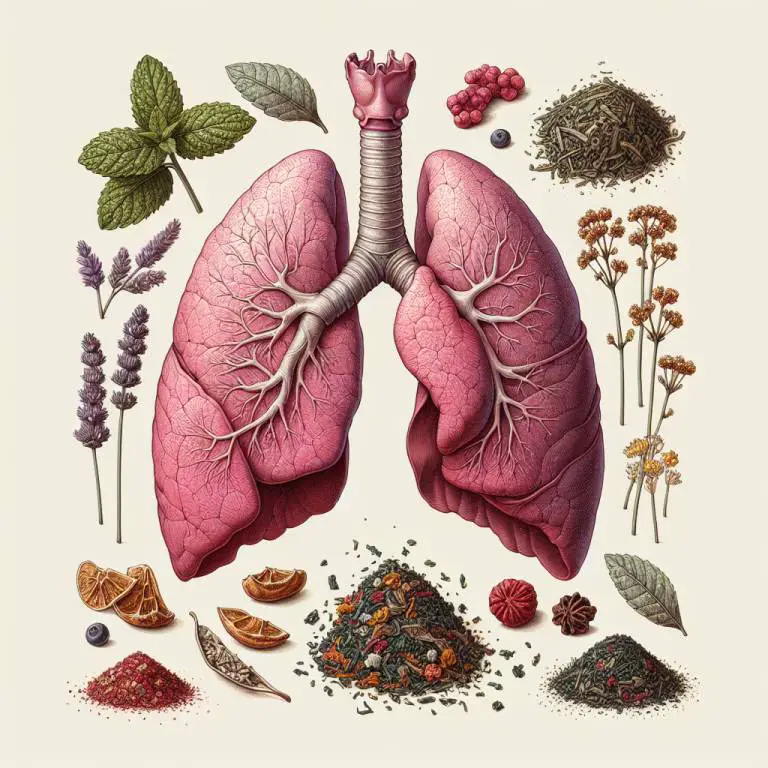Is peppermint tea good for asthma patients?
Yes, peppermint tea can be good for asthma patients. The menthol found in peppermint tea helps to relax the muscles in the airways, making it easier to breathe. This can provide relief from asthma symptoms. However, it’s important for individuals with asthma to consult their doctor before trying new remedies.

Is Peppermint Tea Good for Asthma Patients?
Peppermint tea is often thought to be a helpful drink for those with asthma. This is because it contains menthol, which can help relax the muscles in the throat. When these muscles are relaxed, it can make breathing easier for people with asthma.
Many people enjoy peppermint tea not just for its flavor but also for its potential health benefits. For asthma patients, finding natural ways to ease symptoms is always a plus. Drinking peppermint tea might offer some relief, especially during mild asthma episodes.
What Are the Properties of Menthol in Peppermint That Benefit Asthma?
Menthol is a key component found in peppermint that has several beneficial properties for asthma patients. It acts as a bronchodilator, which means it helps to open up the airways and makes breathing easier. This can be particularly helpful during an asthma attack when airways become constricted.
Besides helping with breathing, menthol also has anti-inflammatory properties. Inflammation in the airways is a common issue for those with asthma. By reducing inflammation, menthol can help to reduce the severity of asthma symptoms and improve overall respiratory health.
Learn about natural asthma relief through tea. Find out which teas help and tips for making them.
Can Drinking Peppermint Tea Reduce the Frequency of Asthma Attacks?
Drinking peppermint tea may have a positive effect on reducing the frequency of asthma attacks for some individuals. The relaxation of throat muscles and anti-inflammatory effects from menthol can contribute to fewer episodes. However, it’s important to note that everyone’s body reacts differently, and what works for one person may not work for another.
It’s also crucial to remember that while peppermint tea can be a supportive remedy, it should not replace prescribed medications or treatments from healthcare professionals. Always consult with your doctor about incorporating herbal teas into your asthma management plan.
What Other Herbal Teas Are Beneficial for Asthma and How Do They Compare to Peppermint Tea?
Apart from peppermint tea, other herbal teas like ginger tea and licorice root tea are also known to benefit individuals with asthma. Ginger tea helps by reducing inflammation and relieving congestion in the airways, similar to how menthol works. Licorice root tea has properties that soothe the throat and reduce irritation in the respiratory tract.
Comparing these teas to peppermint tea, each has its unique benefits that could support respiratory health in different ways. While peppermint offers muscle relaxation through menthol, ginger provides anti-inflammatory benefits without menthol’s cooling effect, and licorice root focuses more on soothing irritation. Depending on individual preferences and specific symptoms, one may find one type of herbal tea more beneficial than others.
| Benefit | Description |
|---|---|
| Airway Relaxation | Menthol in peppermint tea can help relax the muscles of the airways, potentially easing breathing for asthma patients. |
| Anti-inflammatory Properties | Peppermint has anti-inflammatory properties that may reduce inflammation in the airways, contributing to symptom relief. |
| Antioxidant Effects | The antioxidants present in peppermint tea can support overall respiratory health by combating oxidative stress. |
| Congestion Relief | Menthol is a natural decongestant that can help clear mucus and phlegm, making it easier for asthma patients to breathe. |
| Relaxation and Stress Reduction | Drinking peppermint tea may promote relaxation and reduce stress, which can be beneficial since stress can exacerbate asthma symptoms. |
How Should Peppermint Tea Be Consumed for Maximum Benefit to Asthma Patients?
To get the most out of peppermint tea for asthma relief, it’s important to drink it correctly. Drinking one to two cups of peppermint tea daily can help. It’s best consumed warm to maximize its soothing effects on the throat and airways.
Adding honey to peppermint tea can enhance its benefits. Honey is known for its anti-inflammatory properties and can help soothe irritated airways. However, it’s crucial not to add boiling water directly to the tea as it can destroy some beneficial compounds.
Are There Any Risks or Side Effects of Using Peppermint Tea as an Asthma Remedy?
While peppermint tea is generally safe for many people, there are some risks and side effects to be aware of. People with gastroesophageal reflux disease (GERD) may find that peppermint worsens their symptoms because it can relax the sphincter between the stomach and esophagus.
Pregnant women and those taking medication should consult their doctor before using peppermint tea as a remedy. In rare cases, allergic reactions can occur from consuming peppermint. It’s always best to start with small amounts to see how your body reacts.
What Does Scientific Research Say About Herbal Teas and Respiratory Health?
Scientific studies have shown that certain herbal teas, including peppermint, have properties that can benefit respiratory health. These teas contain antioxidants and anti-inflammatory compounds that can help reduce inflammation in the airways.
Research specifically on peppermint tea suggests that menthol, a key component of peppermint, has a relaxing effect on bronchial muscles. This makes breathing easier for asthma patients. However, more research is needed to fully understand these effects and how they compare with traditional asthma treatments.
Final Thoughts
Incorporating peppermint tea into your routine could offer some relief if you’re dealing with asthma. Its natural properties make it a comforting choice for many looking for alternative remedies.
However, it’s essential to remember that while herbal teas like peppermint can complement asthma treatment, they should not replace prescribed medications or professional medical advice. Always consult with a healthcare provider before making significant changes to your asthma management plan.






